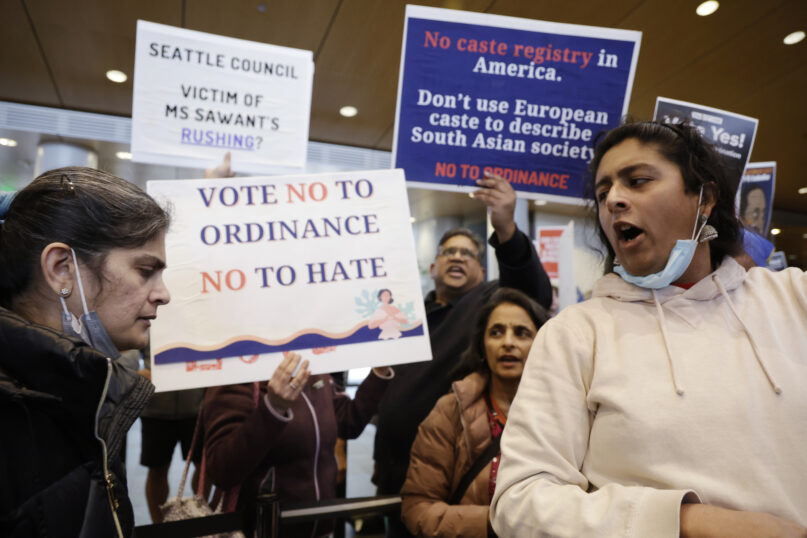(RNS) — Last week, a federal district judge ruled against two California State University professors who claimed the university’s policy barring discrimination on the basis of caste violates the U.S. Constitution’s ban on religious establishments.
Huh?
What the professors’ lawsuit alleged was that by identifying (and prohibiting) caste-based discrimination, Cal State singled out Hinduism for disfavor and took an official position on what Hinduism means, in violation of the First Amendment’s establishment clause. Judge R. Gary Klausner decided that neither was the case.
“As Plaintiffs themselves admit, caste discrimination occurs across the world amongst
adherents of many religions,” Klausner wrote. “The Policy, which does not reference Hinduism, prohibits ‘discrimination based on…Race or Ethnicity (including color, caste, or ancestry).’ No reasonable reader would conclude that the Policy defines Hinduism to include a caste system.”
“In short,” the judge wrote, “Plaintiffs fail to demonstrate that the Policy conveys disapproval of Hinduism, and therefore fails to show a violation of the establishment clause on these grounds.”
Something odd is going on here. In normal establishment clause cases, the plaintiffs sue to get the government to stop doing something they object to, such as subjecting public school students to prayer or Bible reading or allowing religious displays on public land. Here the opposite situation might seem to apply.
The Cal State professors insist they they are against caste discrimination. Likewise, the Hindu American Foundation, whose top executives are listed as “of counsel” in the professors’ complaint, says it “vehemently opposes all forms of prejudice and discrimination, including caste discrimination.”
Given these protestations, you might expect the professors and HAF — the country’s leading Hindu rights organization — to embrace efforts to include caste among the categories protected against discrimination. Especially since there’s significant evidence that caste-based discrimination exists in the U.S. And yet, the mere hint that such discrimination might be inherent in Hinduism is enough to send HAF to the barricades.
Be this hypersensitivity or hypocrisy, what’s going on is a civil war within the United States’ growing South Asian American population. On the one side are a variety of lower-caste Hindus and especially Dalits (formerly known as “untouchables”), along with Buddhists, Sikhs, Muslims and Christians of the South Asian diaspora, many of whom do not belong to favored castes. Many on the other side are aligned with the Hindu nationalism of Indian Prime Minister Narendra Modi.
A few years ago, the 9th U.S. Circuit Court of Appeals slapped down a similar establishment clause case that objected to how Hinduism was described in public school textbooks used in California, concluding that “none of Appellants’ characterizations of the Hinduism materials as disparaging is supported by an objective reading of those materials.”
Most recently, California Gov. Gavin Newsom vetoed a bill that would have made his state the first in the nation to include caste in its anti-discrimination law. Newsom was heavily lobbied to do so by wealthy Hindus who happen to be major Democratic contributors. And yet, this was less than a total defeat for the lower castes.
The bill sought to insert “caste” in anti-discrimination law as one way of specifying the existing protected category of ancestry. In his veto message, Newsom, citing ancestry, explained his action by declaring that the bill was unnecessary because “discrimination based on caste is already prohibited” — thereby strengthening the case against caste discrimination even as he vetoed the bill.
Jennifer Pizer, Los Angeles-based chief legal officer for Lamda Legal, said in an interview that the situation harked back to the days when hate crime legislation could only be passed if it specifically did not mention sexual orientation or gender identity. In due course, with the persistence of crimes against LGBTQ people, both categories were added in California law.
With respect to caste, she said, “liability already likely exists and maybe that affects people’s behavior in a good way. And if the problem persists or even grows, then Newsom’s veto is probably not the end of the story.”






